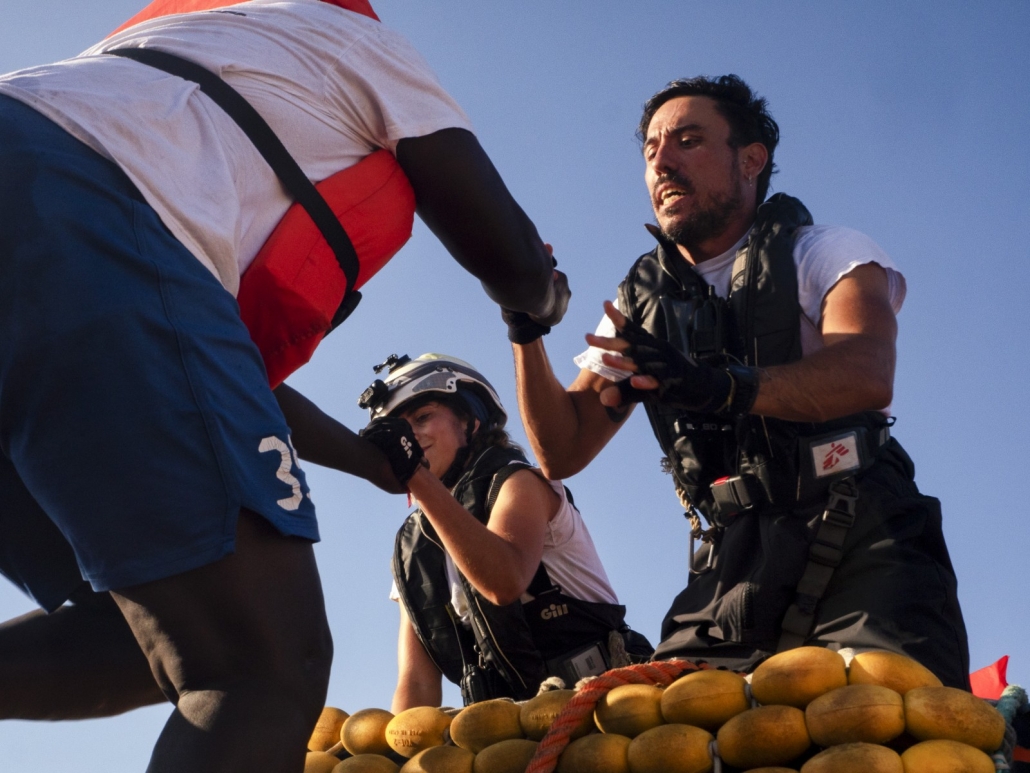
By Zara Gounden and Fraser Byers, Circle of Blue – September 13, 2023
A large group of Pakistani citizens were rescued from a migrant boat in the central Mediterranean Sea a year after cascading floodwaters submerged a third of Pakistan.
These men are among the 160,000 migrants who have crossed the Mediterranean Sea that Italy is on track to receive this year. They represent the increasing number of asylum seekers whose displacement has been driven by water insecurity, flooding, and other worsening effects of climate change.
Unlike some of the other survivors onboard the M.V. Geobarents – a search and rescue vessel operated by Medecins Sans Frontieres (MSF) – these men were not fleeing direct conflicts or war. Rather, they lost their homes and their livelihoods in the August 2022 floods, and left home attempting to find work and refuge in Europe.
Water-related stresses are typically precursors to scarcity that lead to extreme poverty, ethnic conflict, and civil war; making water migrants difficult to identify. Sebastien Ponsford, a humanitarian affairs officer for MSF, suggests that many so-called ‘economic migrants’ are in fact individuals fleeing their homes for climate-driven economic reasons.
It is widely documented that the main countries of origin for migrants who transit the Mediterranean are among the most water insecure nations on Earth. Bangladesh, Pakistan, and Egypt were the top three countries of origin for migrants who departed from Libya with hopes of reaching European shores. With their freshwater deficit expected to worsen, it appears inevitable that more people will be forced to migrate.
Zara is a reporting intern at Circle of Blue. She is a Davis Scholar in her third year at New York University London, majoring in Global Liberal Studies with a concentration in Politics, Rights, and Development.




